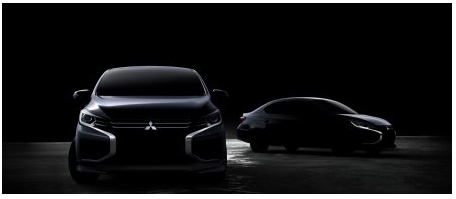…the chief executive of a large dealer for Nissan in Japan. Ghosn was relentlessly driven by the search for scale — his desire to create an ever-bigger automotive empire — but that expansion made it…
Tag: Renault
UPDATE 1-BYD, Toyota to set up research venture to develop electric vehicles
FILE PHOTO: A woman walks past a BYD sign at the second media day for the Shanghai auto show in Shanghai, China April 17, 2019. REUTERS/Aly Song TOKYO/SHANGHAI (Reuters) – Chinese electric car maker BYD Co Ltd and Japan’s Toyota Motor Corp said on Thursday they planned to set up a joint venture to design… Continue reading UPDATE 1-BYD, Toyota to set up research venture to develop electric vehicles
MITSUBISHI MOTORS Restyles Mirage and Attrage Compact Models
TOKYO, Nov 7, 2019 – (JCN Newswire) – MITSUBISHI MOTORS CORPORATION (MMC) is to launch facelifted and updated Mirage(1) hatchback and Attrage(2) sedan models, both global compact cars, in Thailand on November 18, 2019. Both models will feature sharp and dynamic exterior designs that embody the Mitsubishi-ness that identifies the company’s compact cars. Mirage and… Continue reading MITSUBISHI MOTORS Restyles Mirage and Attrage Compact Models
Fiat Chrysler finds new merger partner in Carlos Tavares
Will PSA’s Carlos Tavares prove to be a better merger partner for Fiat Chrysler than Renault and help create the world’s fourth-largest carmaker? Katie Martin discusses the terms of the proposed mega merger and the characters behind the deal with Peter Campbell, motor industry correspondent, and David Keohane in Paris. Contributors: Katie Martin, capital markets… Continue reading Fiat Chrysler finds new merger partner in Carlos Tavares
New Toyota Yaris GR-4 hot hatchback teased
Toyota has issued the first glimpse of its forthcoming Yaris hot hatchback – a homologation special that will be the successor to the current GRMN. Shown in a teaser – which states there will be a reveal of some type at Rally Australia on 17th November – the car appears to be named Yaris GR-4.… Continue reading New Toyota Yaris GR-4 hot hatchback teased
‘Think of what PSA/FCA can do, not what they can’t’
We’ve kind of been here before (insert Renault where you see PSA), but the news that FCA (think Fiat, Jeep, Alfa Romeo, Chrysler, Maserati, Abarth, Dodge and others) is joining forces with PSA (Peugeot, Citroen, Vauxhall/Opel, DS) fills me with huge excitement. Sadly that’s not the case everywhere, with Unite union boss and doom-monger-in-chief Des… Continue reading ‘Think of what PSA/FCA can do, not what they can’t’
Cars.com Reports Third Quarter 2019 Results
CHICAGO, Nov. 6, 2019 /PRNewswire/ — Cars.com Inc. (NYSE: CARS) (“Cars.com” or the “Company”), a leading digital marketplace and solutions provider for the automotive industry, today released its financial results for the quarter ended September 30, 2019. Q3 Financial Highlights Revenue of $152.1 million, down $17.2 million, or 10%, year-over-year, in line with expectations Non-cash… Continue reading Cars.com Reports Third Quarter 2019 Results
Mitsubishi Motors slashes full-year profit forecast on slowing car sales
FILE PHOTO: The logo of Mitsubishi Motors Corp is seen at a showroom of the company’s headquarters in Tokyo, Japan November 26, 2018. REUTERS/Toru Hanai TOKYO (Reuters) – Mitsubishi Motors Corp (7211.T) on Wednesday cut its full-year profit outlook by 67% as it expects sluggish demand in North America and China will continue, while a… Continue reading Mitsubishi Motors slashes full-year profit forecast on slowing car sales
Analysis: The numbers behind the FCA-PSA merger
The FCA-PSA tie-up gathers 15 brands under the same roof The agreed merger between Fiat Chrysler Automobiles and the PSA Group will create the world’s fourth-largest car company based on sales. The two European firms last week announced their intention to create a new entity owned 50/50 between the two but led by PSA’s CEO, Carlos Tavares. PSA will… Continue reading Analysis: The numbers behind the FCA-PSA merger
Expect FCA-Peugeot merger plans to be ‘elephant’ in room during UAW talks
CLOSE The proposed merger of Fiat Chrysler and the company that controls the Peugeot brand is expected to have an impact on FCA’s bargaining with the UAW. (Photo: PSA) The real impact of the expected merger of Fiat Chrysler Automobiles and Peugeot will take some time to become clear, but an early test could come… Continue reading Expect FCA-Peugeot merger plans to be ‘elephant’ in room during UAW talks

